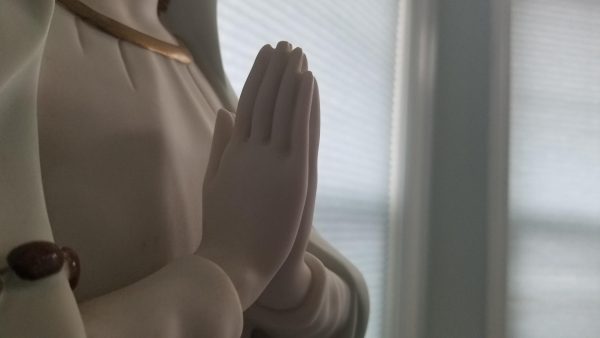Bachelor program allows students to customize their degree
September 9, 2010
The Bachelor of General Studies program offers students a flexible and self-dictated degree, although the program will soon undergo changes.
Offered through the College of Arts and Sciences at Kent State since the 1970s, the Bachelor of General Studies degree program allows students who are unsure of their career goals to essentially create their own degree. By choosing a variety of coursework and broad career goals, a student can earn an adaptable degree that prepares them for a variety of career options.
Associate Dean E. Timothy Moore said the BGS degree program prepares students for an unstable work environment in which adaptability is crucial.
“The general studies program is a uniquely flexible opportunity for a student to tailor make their degree requirements, and aim toward an interdisciplinary approach to graduating with courses that may be beyond one particular discipline, but may be of interest to the student in terms of their career goals,” Moore said. “It really gives you flexibility. You get to be flexible in the choices of courses to finish the program.”
Moore stressed flexibility as the primary advantage to the BGS program, noting the value of skill variety in today’s employment world.
“It shows you how you have to be adaptable in the workforce, because you might get a job in one field, but then get downsized or laid off, and you have to be able to re-tool or adjust to another employment position,” Moore said.
According to the Kent State College of Arts and Sciences homepage, the BGS degree program requires students to complete at least 60 credit hours and to submit a formal proposal for their chosen program. This proposal must detail the direction their BGS program will take, including chosen courses. These chosen courses under the BGS program must entail at least 30 credit hours.
“There is a 30-hour requirement upon being accepted to the program. If you came in with 96 hours, you’d still have to take 30 more hours once you were in the program to complete the BGS Component,” Moore said. “So you might end up graduating with 126 hours as opposed to 121.”
Moore also confirmed that the BGS program will undergo minor changes in the future, although most details are unclear.
“We’re going to expect in the future that there will be a much higher concentration of Arts and Sciences, upper division courses being a part of that 30 hour proposal that they (the students) have to submit,” Moore said. “That will be forthcoming along with some other minor changes, just to make it (the program) more accessible to more people. The name is going to be changed from General Studies to Bachelor of Interdisciplinary Studies. It is premature to talk any further until we have everything approved through the curricular process.”
When asked about the disadvantages of the program, Moore said that the generalist nature of the BGS degree can work against it in some cases, mostly due to the perceptions of parents and employers.
“It’s been a perceived disadvantage that people don’t know how to interpret the word ‘general’. I knew one person who didn’t want people to know that he had a general degree,” Moore said. “So that’s that stigma that’s been out there psychologically. We encourage our students to be capable of marketing themselves.”
Though upcoming changes may alter the mechanics of the BGS program, the core values remain. Offering a diverse education with versatile career goals, all directed by the student themselves.
“I’m glad we have this opportunity available for students, as a flexible means of helping them finish off what they started, even if it’s not in the direct path that they originally started in,” Moore said. “It’s a way for them to come away with a degree that can help them move on to the next level of what they want to do with their life.”
Contact Conner Howard [email protected].
























